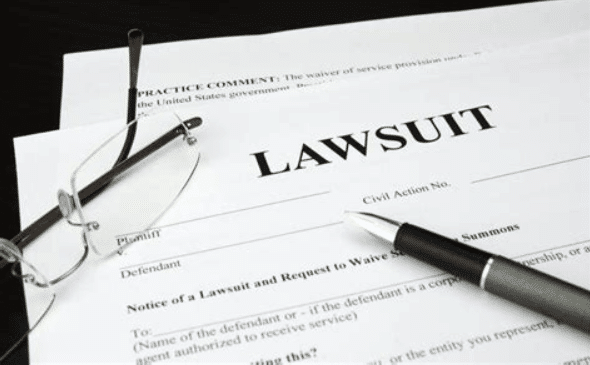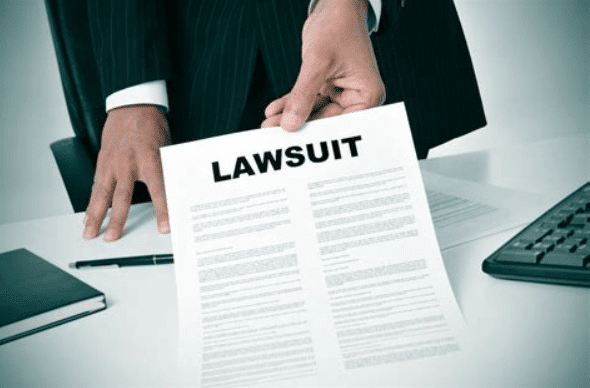Wisconsin provides a complimentary online resource designed to facilitate the accessibility of court case information, thereby enabling individuals to conveniently monitor the status of their cases remotely. This article outlines the procedure for locating your case. Additionally, individuals facing debt-related lawsuits can utilize ZumaZip.com to submit their response.
Under the purview of the Wisconsin open records law, citizens possess the entitlement to review and obtain duplicates of court records. Concerned parties can avail themselves of this online platform to ascertain whether a debt collection lawsuit has been initiated against them.
Wisconsin’s judicial system provides an online portal for finding your court case.
Maintaining oversight of your case is imperative if you have been subject to a debt lawsuit. Often, defendants are not adequately served with pertinent case documents by collectors. Consequently, accessing your case online serves as a valuable resource for monitoring its development.
Given the challenges associated with locating one’s case, this article aims to provide comprehensive guidance on navigating the process within the Wisconsin court system.
Before delving into the specifics of locating your case, it’s essential to grasp the structural framework of Wisconsin’s civil court system.
Wisconsin’s civil court structure
In order to find your case information online or in person, it’s important to understand how the civil courts are structured in Wisconsin. When you know what courts have jurisdiction over certain types of cases, it will be easier for you to narrow down the court to which your case is assigned. Debt collection cases are considered civil cases, so we will focus on that particular case type in this section.
In Wisconsin, there are three levels of courts that deal with civil cases:
- Supreme Court
- Court of Appeals
- Circuit Court
Within Wisconsin’s judicial hierarchy, the Supreme Court stands as the apex of the judicial branch. Functioning primarily as an appellate body, the Supreme Court adjudicates civil cases that have been escalated from the Court of Appeals.
Likewise, the Court of Appeals assumes jurisdiction over civil matters that have been appealed from the Circuit Courts. Put simply, individuals dissatisfied with a case’s outcome have the option to appeal, thereby elevating the case to the subsequent judicial tier.
Circuit Courts wield authority over standard civil cases devoid of monetary constraints, as well as small claims cases involving sums up to $10,000. These courts are geographically dispersed, with each county housing at least one branch. It’s noteworthy that debt collection proceedings invariably commence at the Circuit Court level.
Find your Wisconsin court records online
Once you have identified the jurisdiction of your case, conducting an online search for your court case becomes more straightforward. In Wisconsin, court clerks serve as custodians of court records, maintaining them in both physical and electronic formats.
It’s important to note that access to public records within Wisconsin Circuit Courts is facilitated through the WCCA (Wisconsin Circuit Court Access) system. However, it’s crucial to be aware that certain types of documents, such as those related to adoptions, juvenile delinquency, child protection, termination of parental rights, guardianship, and civil obligations, are classified as confidential and are not available on the WCCA platform.
Fortunately, Wisconsin offers robust tools for conducting court case searches. Here is an overview of these resources:
If you’re being sued for a debt in Wisconsin, you’re going to use the WCCA tool to search for your case online. You will need to enter some or all of the following information to find your case:
- Your full name
- Your birth date
- Business name (if you’re being sued by a business)
- County
- Case number
Navigating this tool is remarkably user-friendly, typically requiring only the input of your name or the name of the individual listed on the case to retrieve relevant information.
However, it’s essential to bear in mind that access to public records within Wisconsin Circuit Courts is limited through the WCCA (Wisconsin Circuit Court Access) system. Notably, documents pertaining to adoptions, juvenile delinquency, child protection, termination of parental rights, guardianship, and civil obligations are categorized as confidential and are therefore inaccessible through the WCCA platform.
WCCA’s case summaries provide helpful information about each case
The WCCA portal provides visibility into any notes or explanatory comments inputted by the court clerk regarding criminal proceedings. It’s important to note that these explanatory comments do not constitute official transcripts or comprehensive descriptions of documents, hearings, court rulings, or other events. Documents filed within court cases are not accessible through this website. However, individuals have the option to view scanned or electronic documents in person at the courthouse.
The WCCA portal offers access to case file information for the duration of the Clerk of Court’s retention period. Typically, civil and misdemeanor criminal cases are retained for 20 years, while felony criminal cases are preserved for 50 years, except for Class A felony cases, which are retained for 75 years.
This retention policy encompasses small claims lawsuits that are dropped without a judgment against either party, as well as criminal cases that are dismissed or culminate in an acquittal. Such cases remain available on the WCCA portal for a period of two years.
Check your Wisconsin court case status at the courthouse
Accessing court records can be facilitated through in-person inquiries at the courthouse where the case is lodged. Many courthouses across Wisconsin are equipped with public access terminals situated within the court clerks’ offices, providing individuals without home computers the means to search for their cases. Additionally, court clerks are available to offer assistance should you encounter any difficulties during your search.
Should you require printed copies of court documents, please be advised that a fee may be applicable for this service.
Use a Wisconsin court directory to find the address of your courthouse and the court clerk’s phone number.
How do court case numbers work in Wisconsin?
Each court case in Wisconsin is assigned a unique case number for organizational efficiency. This alphanumeric identifier is instrumental for record custodians as it facilitates the swift retrieval and tracking of requested information.
Debt collection cases in Wisconsin fall under the purview of civil or small claims cases. Civil cases are consistently denoted by the case type code CV, whereas small claims cases are designated by the case type code SC.
In Wisconsin, case numbers adhere to a standardized format comprising the filing year, case type, and sequential case number. For instance, a case number such as 2024CV000100 signifies the 100th civil case filed in the year 2024.
Check out this helpful resource to learn more about case type codes.
The Wisconsin Circuit Court Access (WCCA) and Wisconsin Supreme Court of Appeals Case Access (WSCCA) portals serve as valuable resources for retrieving Wisconsin case numbers. Within the search results of these portals, users can identify case numbers by employing alternative search criteria such as case party name, attorney number, or business name. This flexibility allows for efficient access to case information, even in instances where the case number may not be readily available.
Respond to a lawsuit with ZumaZip.com
In the event of being sued for a debt, ZumaZip.com offers expedited assistance in preparing a response within minutes. The initial crucial step towards contesting a debt collection lawsuit in Wisconsin entails submitting a written Answer. It is imperative to adhere to the statutory timeframe, as individuals are granted 20 days to respond before risking default judgment. Failure to respond within this period may result in adverse consequences, including potential wage garnishment or property liens initiated by the debt collector.
What is ZumaZip?
ZumaZip is a convenient solution designed to streamline your response to a debt collection lawsuit. Here’s a breakdown of what you can expect when you use ZumaZip:
Firstly, you’ll access our user-friendly web application, which guides you through the process step by step. You’ll be prompted to answer a series of questions related to your specific situation. Once you’ve completed the questionnaire, you have the option to either print out the finalized forms and mail them to the appropriate courts yourself, or you can opt to utilize ZumaZip’s services to file them on your behalf. Additionally, if you choose this option, an attorney will review your document for added peace of mind.
If you’re seeking guidance on how to effectively respond to a debt collection lawsuit, ZumaZip can provide the assistance you need. Feel free to explore our FAQs for more information on what ZumaZip has to offer.
What if I haven’t been sued yet?
If you’ve only received a collections notice, but not a lawsuit, the best way to respond is with a Debt Validation Letter. When a debt collector contacts you in any way, whether it’s by phone or mail, you can respond by formally requesting a debt validation with a Debt Validation Letter . This letter notifies the collector that you dispute the debt and forces them to provide proof you owe the debt. They can’t call you or continue collecting until they provide validation of the debt. This flowchart shows how you can use a Debt Validation Letter to win.
Get started with a Debt Validation Letter here.
How to Answer a Summons for debt collection in all 50 states
Here’s a list of guides on how to respond to a debt collection lawsuit in each state:
- Alabama
- Alaska
- Arizona
- Arkansas
- California
- Colorado
- Connecticut
- Delaware
- Florida
- Georgia
- Hawaii
- Idaho
- Illinois
- Indiana
- Iowa
- Kansas
- Kentucky
- Louisiana
- Maine
- Maryland
- Massachusetts
- Michigan
- Minnesota
- Mississippi
- Missouri
- Montana
- Nebraska
- Nevada
- New Hampshire
- New Jersey
- New Mexico
- New York
- North Carolina
- North Dakota
- Ohio
- Oklahoma
- Oregon
- Pennsylvania
- Rhode Island
- South Carolina
- South Dakota
- Tennessee
- Texas
- Utah
- Vermont; Vermont (Small Claims court)
- Virginia
- Washington
- West Virginia
- Wisconsin
- Wyoming
Guides on how to beat every debt collector
Hey there! Facing off against a debt collector can feel like a daunting challenge, but fear not! We’re here to help you navigate through it all with our handy guides designed to assist you in beating every debt collector you encounter. Whether you’re facing a new lawsuit or dealing with a persistent collector, we’ve got your back. Stay positive, stay informed, and let’s tackle this together!
- Absolute Resolutions Investments LLC
- Accredited Collection Services
- Alliance One
- Amcol Clmbia
- American Recovery Service
- Asset Acceptance LLC
- Asset Recovery Solutions
- Associated Credit Services
- Autovest LLC
- Cach LLC
- Cavalry SPV I LLC
- Cerastes LLC
- Colinfobur
- Covington Credit
- Crown Asset Management
- CTC Debt Collector
- Cypress Financial Recoveries
- Delanor Kemper & Associates
- Eagle Loan of Ohio
- Educap
- Estate Information Services
- FIA Card Services
- Forster & Garbus
- Freshview Solutions
- Fulton Friedman & Gullace LLP
- Harvest Credit Management
- Howard Lee Schiff
- Hudson & Keyse LLC
- Integras Capital Recovery LLC
- Javitch Block
- Jefferson Capital Systems LLC
- LVNV Funding
- Mannbracken
- Mariner Finance
- Medicredit
- Michael J Adams PC
- Michael J Scott
- Midland Funding LLC
- Mullooly, Jeffrey, Rooney & Flynn
- Mountain Land Collections
- MRS Associates
- National Collegiate Trust
- Nationstar Foreclosure
- Northstar Capital Acquisition
- NCEP LLC
- NRC Collection Agency
- OneMain Financial
- Palisades Collection LLC
- Pallida LLC
- Paragon Revenue Group
- Pinnacle Collections Agency
- PMAB LLC
- Portfolio Recovery Associates
- Provest Law
- PYOD LLC
- Reunion Student Loan Finance Corporation
- Revenue Group
- Regents and Associates
- RSIEH
- Salander Enterprises LLC
- Second Round Sub LLC
- Security Credit Services
- Sherman Financial Group
- Suttell and Hammer
- T-Mobile
- Transworld Systems
- Tulsa Teachers Credit Union
- UCB Collection
- Velo Law Office
- Velocity Investments
- Waypoint Resource Group
- Weinberg and Associates
- Wolpoff & Abramson
Settle your medical debt
Having a health challenge is stressful, but dealing medical debt on top of it is overwhelming. Here are some resources on how to manage medical debt.
- Am I Responsible for My Spouse’s Medical Debt?
- Do I Need a Lawyer for Medical Bills?
- Do I Need a Lawyer to Fight Medical Bill Debt?
- Does Bankruptcy Clear Medical Debt?
- How Much Do Collection Agencies Pay for Medical Debt?
- How to Find Medical Debt Forgiveness Programs
- Is There a Statute of Limitations on Medical Bills?
- Medical Debt Statute of Limitations by State
- Summoned to Court for Medical Bills — What Do I Do?
- Summoned to Court for Medical Bills? What to Do Next
Stop calls from Debt Collectors
Do you keep getting calls from an unknown number, only to realize that it’s a debt collector on the other line? If you’ve been called by any of the following numbers, chances are you have collectors coming after you, and we’ll tell you how to stop them.
- 800-390-7584
- 800-289-8004
- 800-955-6600
- 877-366-0169
- 877-591-0747
- 800-278-2420
- 800-604-0064
- 800-846-6406
- 877-317-0948
- 888-899-4332
- 888-912-7925
- 202-367-9070
- 502-267-7522
Other wage garnishment resources
- Bank Account Garnishment and Liens in Texas
- Can I Stop Wage Garnishment?
- Can My Wife’s Bank Account Be Garnished for My Debt?
- Can Payday Loans Garnish Your Wages?
- Can pensions be garnished?
- Can Private Disability Payments Be Garnished?
- Can Social Security Disability Be Garnished?
- Can They Garnish Your Wages for Credit Card Debt?
- Can You Stop a Garnishment Once It Starts?
- Guide to Garnishment Limits by State
- How Can I Stop Wage Garnishments Immediately?
- How Long Before a Creditor Can Garnish Wages?
- How Long Does It Take to Get Garnished Wages Back?
- How to Fight a Wage Garnishment
- How to Prevent Wage Garnishment
- How to Stop a Garnishment
- How to Stop Social Security Wage Garnishment
- How to Stop Wage Garnishment — Everything You Need to Know
- New York Garnishment Laws – Overview
- Ohio Garnishment Laws — What They Say
- Wage Garnishment Lawyer
- What Is Wage Garnishment?
Guides on Arbitration
If the thought of going to court stresses you out, you’re not alone. Many Americans who are sued for credit card debt utilize a Motion to Compel Arbitration to push their case out of court and into arbitration.
Below are some resources on how to use an arbitration clause to your advantage and win a debt lawsuit.
- How Arbitration Works
- How to Find an Arbitration Clause in Your Credit Agreement
- How to Make a Motion to Compel Arbitration
- How to Make a Motion to Compel Arbitration in Florida
- How to Make a Motion to Compel Arbitration Without an Attorney
- How Credit Card Arbitration Works
- Motion to Compel Arbitration in California
- Sample Motion to Compel Arbitration
Federal Debt Collection Laws Can Protect You
Knowing your rights makes it easier to stand up for your rights. Below, we’ve compiled all our articles on federal debt collection laws that protect you from unfair practices.
- 15 USC 1692 Explained
- Does the Fair Credit Reporting Act Work in Florida?
- FDCPA Violations List
- How to File an FDCPA Complaint Against Your Debt Collector (Ultimate Guide)
- How to Make a Fair Debt Collection Practices Act Demand Letter
- How to Submit a Transunion Dispute
- How to Submit an Equifax Dispute
- How to Submit an Experian Dispute
- What Debt Collectors Cannot Do — FDCPA Explained
- What Does Account Information Disputed by Consumer Meets FCRA Requirements Mean?
- What does “meets FCRA requirements” mean?
- What does FCRA stand for?
- What is the Consumer Credit Protection Act
Resolve Your Debt with Your Creditor
Some creditors, banks, and lenders have an internal collections department. If they come after you for a debt, ZumaZip can still help you respond and resolve the debt. Here’s a list of guides on how to resolve debt with different creditors.
- American Express; American Express – Debt Collection
- Bank of America
- Barclay
- Best Buy Credit Card
- Capital One
- Chase
- Credit One Bank
- Old Navy Credit Card
- PayPal Synchrony Card
- Regional Finance
- Retailers National Bank
- Reunion Student Loan Finance Corporation
- SYNCB/PPEXTR
- Synchrony Bank
- Synchrony Walmart Card
- Target National Bank
- Webbank
- Wells Fargo
- Can I Pay My Original Creditor Instead of a Debt Collection Agency?
- Can I Settle a Debt with the Original Creditor?
Check the Status of Your Court Case
Don’t have time to go to your local courthouse to check the status of your case? We’ve created a guide on how to check the status of your case in every state, complete with online search tools and court directories.
- Alabama Court Case Search—Find Your Lawsuit
- Alaska Court Case Search — Find Your Lawsuit
- Arizona Court Case Search – Find Your Lawsuit
- Arkansas Court Case Search — Find Your Lawsuit
- California Court Case Search- Find Your Lawsuit
- Colorado Court Case Search — Find Your Lawsuit
- Connecticut Case Lookup — Find Your Court Case
- Delaware Court Case Search — Find Your Lawsuit
- Florida Court Case Search — Find Your Lawsuit
- Georgia Court Case Search — Find Your Lawsuit
- Hawaii Court Case Search — Find Your Lawsuit
- Idaho Court Case Search – Find Your Lawsuit
- Illinois Court Case Search — Find Your Lawsuit
- Indiana Court Case Search — Find Your Lawsuit
- Iowa Court Case Search — Find Your Lawsuit
- Kansas Court Case Search — Find Your Lawsuit
- Kentucky Court Case Search — Find Your Lawsuit
- Louisiana Court Case Search — Find Your Lawsuit
- Maine Court Case Search — Find Your Lawsuit
- Maryland Court Case Search — Find Your Lawsuit
- Massachusetts Court Case Search — Find Your Lawsuit
- Michigan Court Case Search — Find Your Lawsuit
- Minnesota Court Case Search — Find Your Lawsuit
- Mississippi Court Case Search — Find Your Lawsuit
- Missouri Court Case Search — Find Your Lawsuit
- Montana Court Case Search — Find Your Lawsuit
- Nebraska Court Case Search — Find Your Lawsuit
- Nevada Court Case Search — Find Your Lawsuit
- New Hampshire Court Case Search — Find Your Lawsuit
- New Jersey Court Case Search—Find Your Lawsuit
- New Mexico Court Case Search – Find Your Lawsuit
- New York Case Search — Find Your Lawsuit
- North Carolina Court Case Search — Find Your Lawsuit
- North Dakota Court Case Search — Find Your Lawsuit
- Ohio Court Case Search — Find Your Lawsuit
- Oklahoma Court Case Search — Find Your Lawsuit
- Oregon Court Case Search — Find Your Lawsuit
- Pennsylvania Court Case Search — Find Your Lawsuit
- Rhode Island Court Case Search — Find Your Lawsuit
- South Carolina Court Case Search — Find Your Lawsuit
- South Dakota Court Case Search — Find Your Lawsuit
- Tennessee Court Case Search — Find Your Lawsuit
- Texas Court Case Search — Find Your Lawsuit
- Utah Court Case Search — Find Your Lawsuit
- Vermont Court Case Search — Find Your Lawsuit
- Virginia Court Case Search — Find Your Lawsuit
- Washington Court Case Search — Find Your Lawsuit
- West Virginia Court Case Search — Find Your Lawsuit
- Wisconsin Court Case Search — Find Your Lawsuit
- Wyoming Court Case Search — Find Your Lawsuit


































